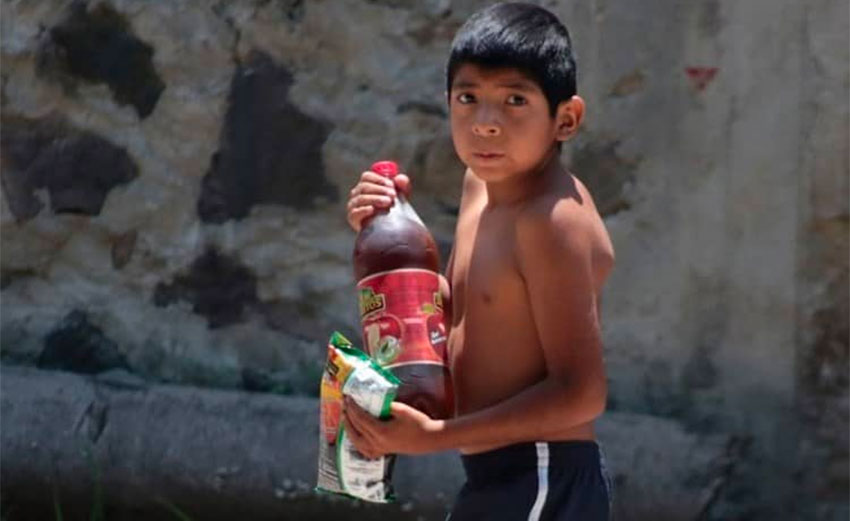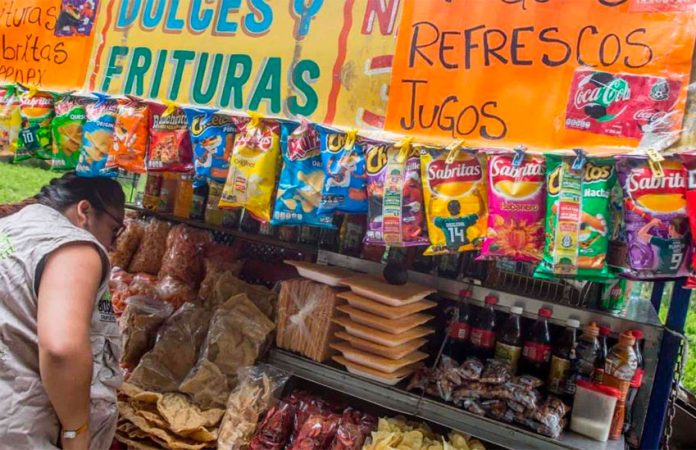The Congress of Oaxaca passed a law on Wednesday that bans the sale of junk food and sugary drinks to minors.
Thirty-one lawmakers voted in favor of the so-called ley antichatarra, or anti-junk food law, while just one voted against it.
Oaxaca becomes the first state in the country to prohibit the sale of items such as chips, candy, soda and other sugary drinks to children under 18.
The enactment of the law comes as health authorities blame Mexico’s high coronavirus death toll on the high prevalence of diet-related diseases such as diabetes and obesity. Deputy Health Ministry Hugo López-Gatell last month described soft drinks as “bottled poison.”
Magaly López Domínguez, a Morena party deputy who presented the legislation, said obesity has reached “epidemic proportions” in Mexico and that Oaxaca has the highest rates of childhood obesity among the country’s 32 states.

“About 28 of every 100 boys and girls aged between 5 and 11 suffer from obesity or are overweight, according to Oaxaca health services,” she said.
A study by the National Institute of Public Health (INSP) and Tufts University found that the high rates of consumption of soft drinks and other drinks with a high sugar content contributes to the death of more than 40,000 people a year.
“We could prevent a large number of deaths by reducing the consumption of sugary drinks,” said Tonatiuh Barrientos, an assistant director at INSP and one of the authors of the report.
The researchers involved in the study proposed increasing the IEPS excise tax on sugary drinks by up to 40%.
Oaxaca’s new law, which was backed by the United Nations Children’s Fund and scores of other international organizations, also prohibits the supply of such products to minors.
However, parents are exempt from the restriction, meaning that they will still be able to give high-calorie treats to their children.
The Oaxaca Health Ministry will have to determine exactly which products children will be prohibited from buying. Those that exceed recommended limits for sugar, saturated fat, trans fat and salt are set to be off limits.
Before legislators voted on the law, a group of grocery store owners and business group members protested outside the Congress building and said they would take legal action if it passed.
López, the law’s sponsor, said the ban “in no way seeks to punish business owners” and any suggestion that it does was a lie.
She said it was regrettable that the business sector has tried to make people believe that prohibiting the sale of unhealthy foods to children would cause an “economic catastrophe” for Oaxaca.
López pointed out that shops will still be able to sell junk food and soft drinks to adults, likening the ban to that on the sale of cigarettes and alcohol to minors.
“We have to put a stop to the privileges of the few to prioritize children’s health. There is no place for economic interests above health,” she said.
Source: La Silla Rota (sp), El Universal (sp), Milenio (sp)
